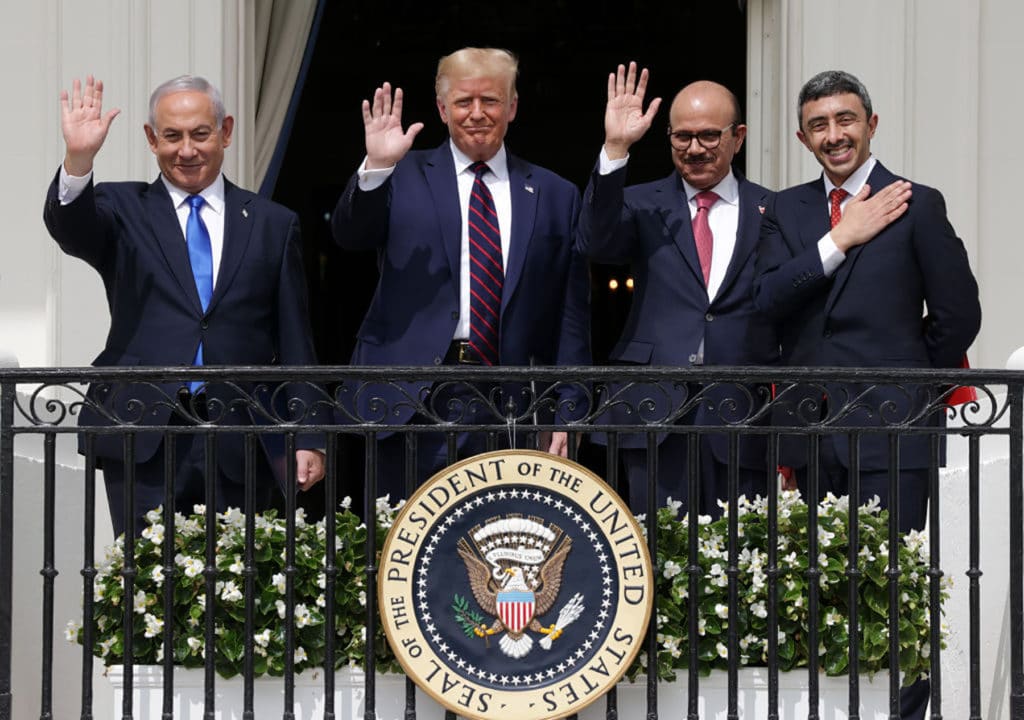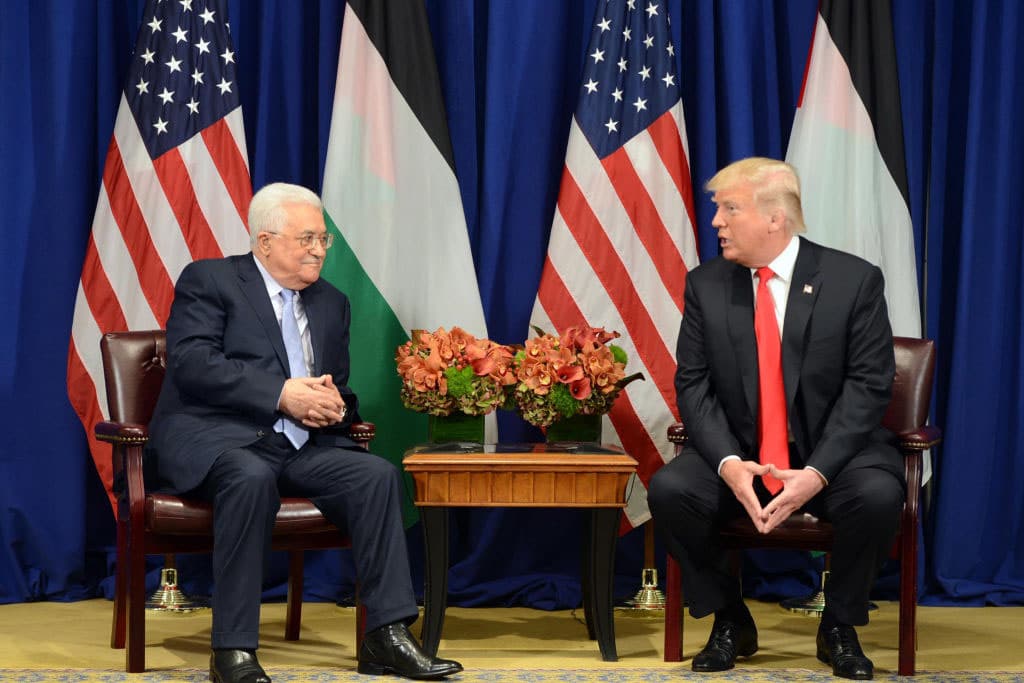
WASHINGTON DC (Israel Policy Forum) — One of the important issues raised by the Abraham Accords is leverage and how it can be used. The animating theory behind the outside-in approach to the Israeli-Palestinian conflict is that once there are normalized relations between Israel and Arab states, those states will use their newfound relationships with Israel to incentivize Israel into negotiations and compromise, and will use their existing relationships with the Palestinians to do the same while also providing the Palestinians with backing in order to reduce the power imbalance between the sides. Whether Israel or the Palestinians will be responsive to the leverage that Arab states are able to wield, or whether Arab states have any desire to actually wade into the Israeli-Palestinian conflict in order to create an outside-in dynamic, are larger questions whose answers will not be definitively known for some time. But if states like the United Arab Emirates want to do so successfully, there are lessons from recent U.S. experience with Israelis and Palestinians that they may want to take to heart.

Over the past four years, the Trump administration has pursued opposite approaches to Israel and the Palestinians. On the Israeli side of the ledger, President Trump has done everything he can to demonstrate not only that there is no daylight between the U.S. and Israel, but to go out of his way to fulfill Israeli wish lists. Some of these policy moves have been ones that were on everyone’s radar from the day Trump took office, such as pulling out of the Iran deal, recognizing Jerusalem as Israel’s capital, and moving the embassy to Jerusalem from Tel Aviv. Others were more in the weeds, such as officially recognizing Israeli sovereignty over the Golan Heights. Yet others were items that even the most optimistic Israeli official may have dreamed about but never really expected, such as overturning the State Department legal opinion that West Bank settlements are inconsistent with international law or releasing a peace plan that presented unilateral West Bank annexation as a point of departure before getting to anything else. While there have been some bumps in the road in the past few months – the White House’s initial slow-rolling of implementing annexation, the murkiness over Israel’s comfort level with F-35 sales to the UAE, simmering tension over Israel’s defense and trade relationships with China – the overall frame of the Trump approach to Israel has been to always say yes and never say no, irrespective of the issue or the request.
Over the past four years, the Trump administration has pursued opposite approaches to Israel and the Palestinians.
With regard to the Palestinians, the Trump approach has been the opposite. While Trump initially made a high-profile public effort to engage with President Abbas and the Palestinian Authority, inviting Abbas to the White House and meeting with him in Bethlehem as well, the tactics shifted in the aftermath of the Jerusalem decision and the subsequent Palestinian boycott of the administration. Since then, there has been no pressure tactic available to the White House that it has not pursued, from suspending all aid to the West Bank and Gaza, to not spending funds directed toward Palestinian humanitarian institutions appropriated by Congress, to closing the PLO mission in Washington and merging the Consulate General in Jerusalem into the Embassy, to denying visas to prominent Palestinian figures, to formulating and releasing an Israeli-Palestinian peace plan without any Palestinian input. The framework has been to use any tools at the U.S.’s disposal to turn up the heat on the Palestinians in an effort to make them more compliant with the administration’s requests and desires.

There are both champions and detractors of this bifurcated approach, but whether you cheer it or condemn it based on your policy preferences, it is an inefficient way to get what you want. The best way to build and exercise leverage is by creating a situation where you have something the other side wants you to give in both the positive and negative spheres, the proverbial carrots and sticks. With Israel and the Palestinians, the U.S. during the Trump administration has exercised an all-or-nothing approach, giving it leverage on only one axis but removing it entirely on the other. It means that the U.S. actually has little leverage left with either side without acknowledging policy failure, as it has gone as far as it can go in each direction without evincing a willingness to moderate its course.
With Israel and the Palestinians, the U.S. during the Trump administration has exercised an all-or-nothing approach, giving it leverage on only one axis but removing it entirely on the other.
This is most easily seen on the Palestinian side. The U.S. eschewed any use of carrots, electing to utilize only sticks, and it buried the Palestinians under its entire log pile in what amounted to one fell swoop. The strategy has not worked; the Palestinians have not dropped their objection to engaging with the Trump administration, have not moderated their own positions, have not accepted the Trump plan or even accepted it as the basis for negotiations, and have instead declared that they will not engage with the U.S. as a sole mediator ever again. It is difficult to identify any ways in which the Palestinian position has been successful or achieved anything beyond the emotional satisfaction that comes with righteous anger, but that does not change the fact that the U.S. aim of bringing so much pressure to bear on the Palestinians that they would change course has failed. Because the U.S. took such a one-sided approach, there is no leverage left to be had. It is hard to identify any remaining ways in which the U.S. can further pressure the Palestinians, and the U.S. has no influence left with the Palestinians on the positive end because we are not giving them anything. Threatening to take something else away is not an available option, and there is no good will upon which to trade.

On the Israeli side, there is a mirror image problem. The U.S. under the Trump administration is unwilling to threaten to withhold anything from Israel, whether it be military assistance or diplomatic support, but it also has no positive incentives left to give. Assume for a moment that the Trump administration wanted the Israeli government to make some sort of concession to the Palestinians in order to get negotiations between the two sides off the ground. What can this administration or any future administration offer the Israeli government that it has not already received? Jerusalem has been recognized as the capital, the embassy has been moved, all objections to settlement construction have been withdrawn, the U.S. has signaled its conceptual support for annexation, all funding to the Palestinians and to UNRWA has been frozen, and the Palestinians have been sanctioned by the U.S. in nearly every way. And all of this has been done without the U.S. asking for anything at all in return. Not only have all of the carrots been distributed, they have been eaten without a trace of scraps remaining. An administration seeking to come up with positive incentives to tie to Israeli behavior will be left scratching its head.
The example of the Abraham Accords provides a different model. The UAE did not trade normalization with Israel for nothing; it explicitly tied it to a policy goal of suspending annexation, and it was able to do so because it had something valuable to give to Israel. There is a similar example on the Palestinian side reported yesterday, which is that the European Union informed Abbas that it will stop financially supporting the Palestinian Authority unless the PA resumes accepting the tax revenues that are collected by Israel on its behalf and that it has refused since the annexation issue came to the fore. The EU is only in the position to use this leverage with the Palestinians because it has actually been providing the PA with a tangible benefit, and thus it has a stick that it can wave.
The Trump administration has done itself no favors in creating an environment in which no incentives exist for either side to heed American desires or interests, and has essentially erased any leverage it may have had through its own actions. If there was never a goal beyond supporting Israel to the hilt and driving the Palestinians into the ground, then none of this matters. But for Arab states that may want to actually build and use leverage with Israel and the Palestinians, the Trump administration’s example is not one to follow.
Michael Koplow is Israel Policy Forum’s policy director, based in Washington, DC. To contact Michael, please email him at mkoplow@ipforum.org.























 More news and opinions than at a Shabbat dinner, right in your inbox.
More news and opinions than at a Shabbat dinner, right in your inbox.